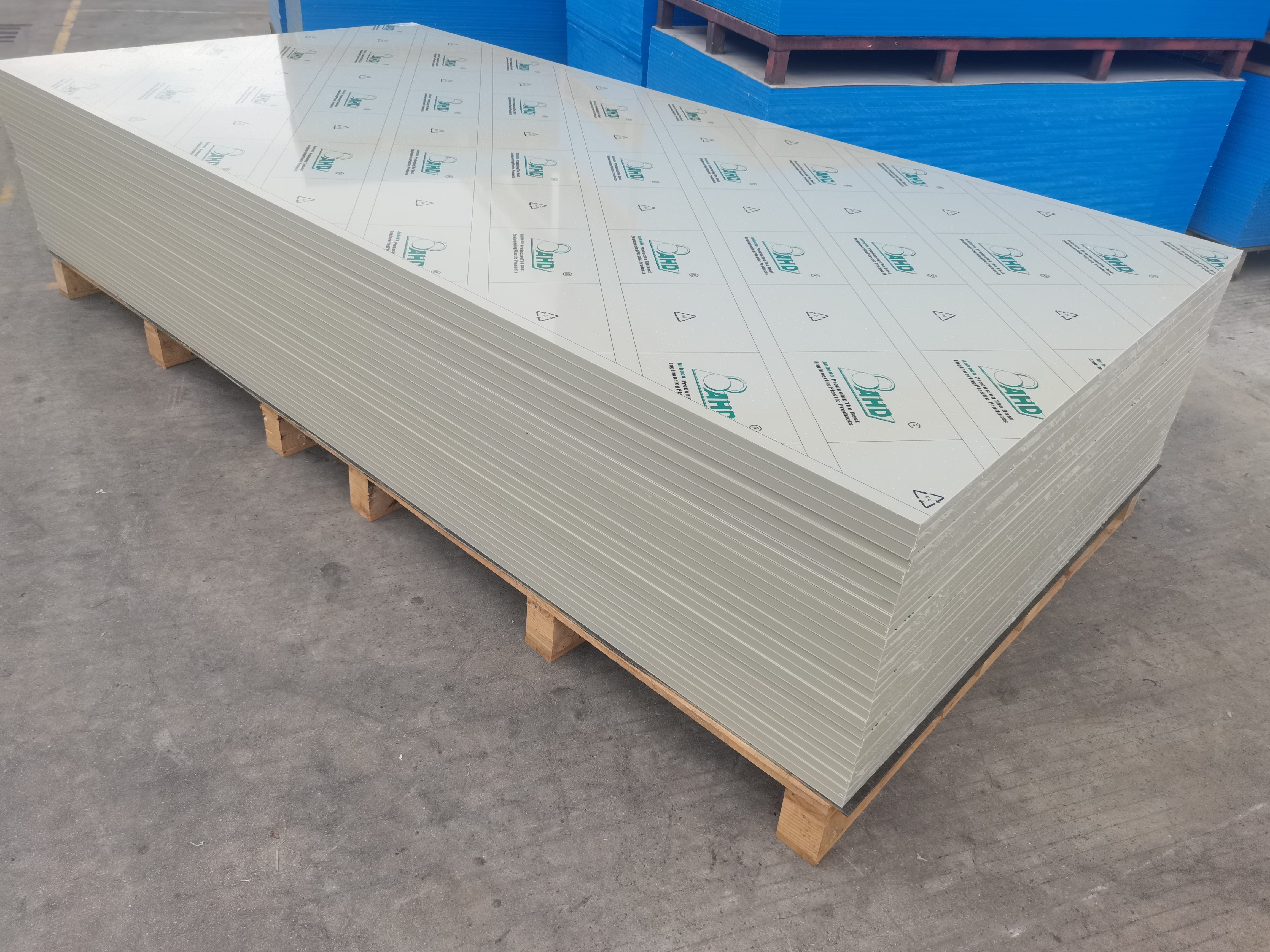Extruded pp plate polypropylene sheet 20mm Thick
| Properties |
Standard |
Unit |
Test Data |
| Specific gravity |
ISO 1183 |
g/cm3 |
0.91 |
| Water absorption |
ISO 62 |
% |
<0.1 |
| Flammability |
UL94 |
|
HB |
| Mechancial Properties |
|
|
|
| Yield stress |
ISO 527 |
Mpa |
30.2 |
| Elongation at break |
ISO 527 |
% |
19 |
| Tensile modulus of elasticity |
ISO 527 |
Mpa |
1210 |
| Notched impact strength |
ISO 179 |
kJ/m2 |
7.36 |
| Notched izod impact strength |
ISO 180 |
kJ/m2 |
7.16 |
| Shore hardness |
ISO 868 |
scale D |
70 |
Product Advantages
Extreme combination of lightweight and chemical resistance
The density of PP sheet is only 0.90-0.91g/cm³, which is one of the lightest varieties of all plastics. It can significantly reduce transportation costs and structural loads (for example, the weight of logistics pallets is more than 40% lighter than that of wooden pallets); at the same time, its tolerance to acids, alkalis, salts and organic solvents far exceeds that of ABS, PE and other materials (such as long-term contact with 10% sulfuric acid or sodium hydroxide solution without swelling), making it the preferred material for chemical storage tanks, reaction tanks, electroplating tanks and other equipment. This "lightweight + chemical corrosion resistance" feature makes it irreplaceable in the fields of chemical industry, environmental protection, food processing, etc.
Excellent heat resistance and dimensional stability
PP sheet has a heat deformation temperature of 90-120℃ (ordinary grade), short-term tolerance to high temperatures of 130℃ (such as hot water immersion or short-term baking), and a long-term use temperature range of -20℃ to 100℃ (better than ABS's -20℃ to 80℃), meeting the needs of most industrial environments. Its low thermal expansion coefficient (9-11×10⁻⁵/℃) makes its dimensional stability better than PE (outdoor billboards are not easily deformed due to temperature changes), and it is suitable for high-temperature disinfection equipment (such as medical device sterilization boxes), outdoor billboards and building templates.
Excellent chemical resistance and non-toxicity
PP sheets have strong resistance to most chemical media (acids, alkalis, salts, organic solvents) (except for strong oxidants such as concentrated sulfuric acid and concentrated nitric acid), and meet FDA and GB 4806.6 food contact safety standards. It can directly contact food (such as storage tanks, conveyor belts), medicines (such as culture dishes) and human bodies (such as medical device shells). This dual advantage of "chemical resistance + non-toxicity" makes it the preferred material in food processing, medical, drinking water systems and other fields.
High impact resistance and fatigue resistance
PP sheet has an Izod notch impact strength of ≥30kJ/m² (normal temperature), and can still maintain good toughness in low temperature environment (impact strength ≥15kJ/m² at -20℃), which is better than ABS and PS (the low temperature impact strength of ordinary ABS is about 10kJ/m²). Its fatigue resistance (not easy to crack under repeated bending or vibration environment) makes it particularly suitable for logistics pallets (long-term stacking turnover), automotive interior parts (such as luggage racks) and sports equipment (such as ski bindings) that require resistance to falling or dynamic loads.
Easy processing and low cost
PP sheet can be processed by extrusion, thermoforming, stamping and other processes, with a wide processing temperature range (extrusion temperature 180-240℃), waste can be 100% recycled (recycling rate ≥95%), and the production cost is only 60%-70% of ABS. Its surface can be plasma treated to improve printing or spraying adhesion (to meet customized needs), suitable for large-scale industrial production (such as logistics pallets with an annual output of up to one million pieces).














